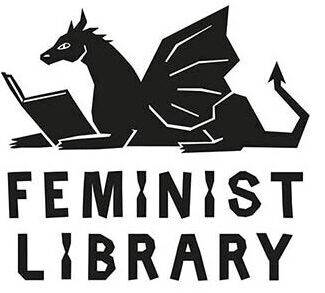Reviewed: Kira Cochrane (ed.), Women of the Revolution: Forty Years of Feminism
 In 1970 the first conference of the National Women’s Liberation Movement was held in Oxford. Forty years later, many of the ideas promoted at the meeting have been absorbed into the mainstream, while other demands, sadly, have yet to be met. In the meantime, debates on rape, abortion, motherhood, war, pornography, gender roles, race, discrimination, and equal pay have marked a movement whose history has been richly and vividly portrayed in Kira Cochrane’s vast, far-reaching anthology Women of the Revolution: Forty Years of Feminism, sourced from the Guardian archive.
In 1970 the first conference of the National Women’s Liberation Movement was held in Oxford. Forty years later, many of the ideas promoted at the meeting have been absorbed into the mainstream, while other demands, sadly, have yet to be met. In the meantime, debates on rape, abortion, motherhood, war, pornography, gender roles, race, discrimination, and equal pay have marked a movement whose history has been richly and vividly portrayed in Kira Cochrane’s vast, far-reaching anthology Women of the Revolution: Forty Years of Feminism, sourced from the Guardian archive.
From Mary Stott’s 1971 article on the Women’s Liberation movement’s recognition of their treatment as “the second sex” to Homa Khaleeli’s 2010 interview with Nawal El Saadawi, the history of feminist thought and activity has been faithfully represented in the Guardian’s pages. We are treated to provocative illustrations of public figures – Mary Stott on Margaret Thatcher and Beatrix Campbell on Princes Diana – and interviews with Camille Paglia, Oprah Winfrey, Maya Angelou and Toni Morrison, alongside leading figures of the movement – Gloria Steinem, Betty Friedan, Sheila Rowbotham, and Susan Brownmiller. Local concerns are equally reflected. There are pieces on the Southall Black Sisters’ campaign in defence of women accuse of killing violent men, a visit to the Spare Rib office, and, particularly poignant, Polly Toynbee’s 1971 account of the first Reclaiming the Night, where her questioning of fellow Guardian staffers about their experiences of abuse revealed just how common and unchallenged harassment was only decades ago in the UK. Chinyelu Onwurah’s 1985 piece on “the double struggle” faced by black women and disunity in the movement recalls an obstacle to the notion of sisterhood, the repercussions of which are still felt today.
The articles are accessible and often entertaining. Of note is Andrea Dworkin’s “modest proposal” in her piece about the Monica Lewinsky scandal which she acknowledged “will probably bring the FBI to my door. But I think that Hillary should shoot Bill and then President Gore should pardon her”! There is righteous anger and acerbic wit throughout the anthology, igniting or reigniting in the reader a passion for feminism and should, for this reason alone, be on every school syllabus.
From bell hooks to Beth Ditto, the period reflected in Women of the Revolution mirrors the timeline of the bulk of the library’s collection – from the Second Wave until the present day – and as such will be a useful tool for researchers here, providing a general overview of a rich and fascinating period of feminist history.
Women of the Revolution by Kira Cochrane (ed.) (Guardian Books, 2010)
